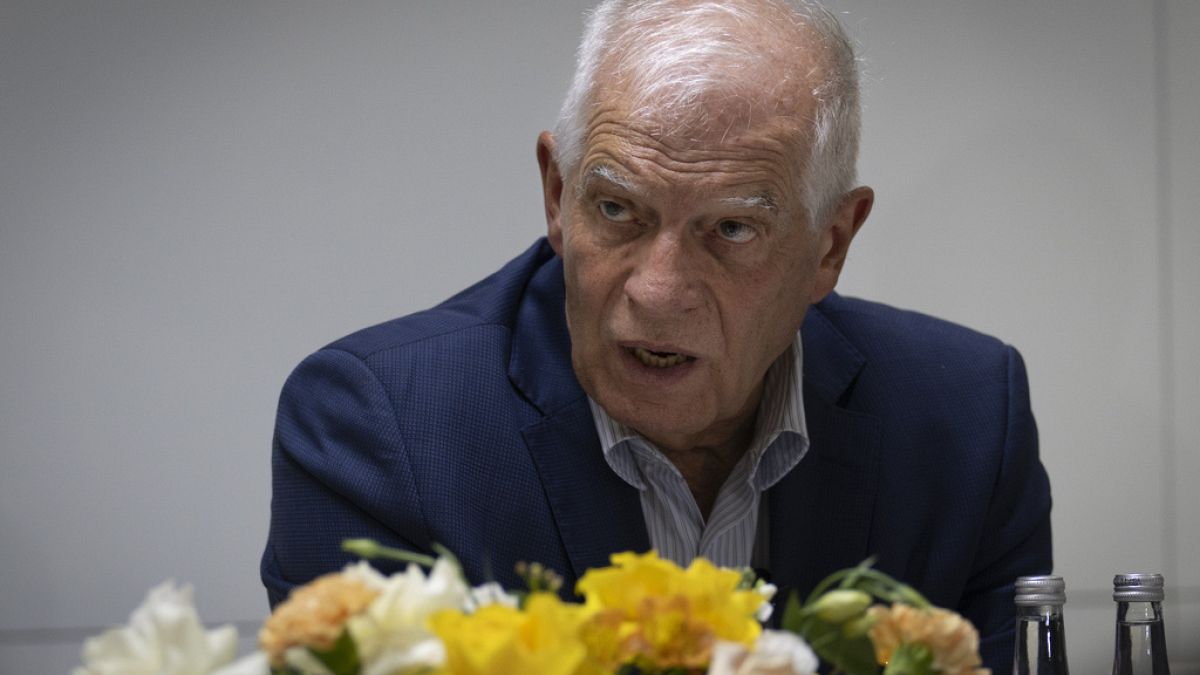The ongoing conflict between Israel and Hezbollah has escalated, with tit-for-tat attacks threatening all-out war in the region. Hezbollah fired over 100 rockets into northern Israel, prompting Tel Aviv to launch hundreds of strikes on Lebanon in retaliation. At the funeral of three militants in Beirut, Hezbollah’s deputy leader declared an “open-ended battle” against Israel, vowing to return stronger despite recent losses. Israeli Prime Minister Benjamin Netanyahu responded by stating that the country will do whatever is necessary to restore security.
The European Union has expressed grave concern over the escalating violence between Israel and Hezbollah. The EU’s Vice President Josep Borrell called for an immediate ceasefire to protect civilians on both sides who are paying an enormous price. Borrell highlighted the need for peace negotiations in the Blue Line and the Gaza Strip, with plans to address the issue at the upcoming United Nations General Assembly in New York. The UN Under-Secretary-General for Political and Peacebuilding Affairs also warned that the fighting poses a grave threat to the stability of the region.
Foreign Secretary David Lammy of the UK joined international voices in calling for an immediate ceasefire between Israel and Hezbollah. Lammy emphasized the need for a negotiated solution to restore stability and security in the region, urging British nationals in Lebanon to leave while commercial options remain available. Meanwhile, the US government has been actively engaged in diplomatic efforts to resolve the tensions between Tel Aviv and Beirut. The Biden administration’s national security spokesperson reiterated the belief in a diplomatic solution, emphasizing the importance of finding time and space for peace negotiations.
The situation in the Middle East is becoming increasingly volatile as both Israel and Hezbollah continue to engage in tit-for-tat attacks, pushing the region closer to all-out war. The escalating violence has sparked international concern, with top European Union figures and the United Nations urging for an immediate ceasefire to protect civilians and restore stability. The UK’s Foreign Secretary has also called for peace negotiations, while the US government remains committed to diplomatic efforts in resolving the conflict. As tensions remain high, the need for a peaceful solution becomes more pressing to prevent further escalation and maintain peace in the region.
The threat of all-out war between Israel and Hezbollah looms large as tit-for-tat attacks escalate in the region. The ongoing violence has drawn international attention, with the European Union and the United Nations calling for an immediate ceasefire to protect civilians and prevent further destabilization. Top diplomats from various countries, including the UK and the US, have joined the chorus of voices advocating for peace negotiations to find a diplomatic solution to the conflict. As tensions continue to rise, the need for a peaceful resolution becomes increasingly urgent to avoid further bloodshed and maintain stability in the Middle East.
The escalating conflict between Israel and Hezbollah has raised concerns about the possibility of all-out war in the region. The tit-for-tat attacks and threats of an “open-ended battle” between the two sides have sparked international alarm, with calls for an immediate ceasefire from top European Union figures and the United Nations. Diplomatic efforts are underway to address the escalating violence and prevent further destabilization in the region. The need for peace negotiations and a diplomatic solution becomes more urgent as tensions continue to rise, highlighting the importance of finding a resolution to the conflict to protect civilians and maintain stability in the Middle East.











